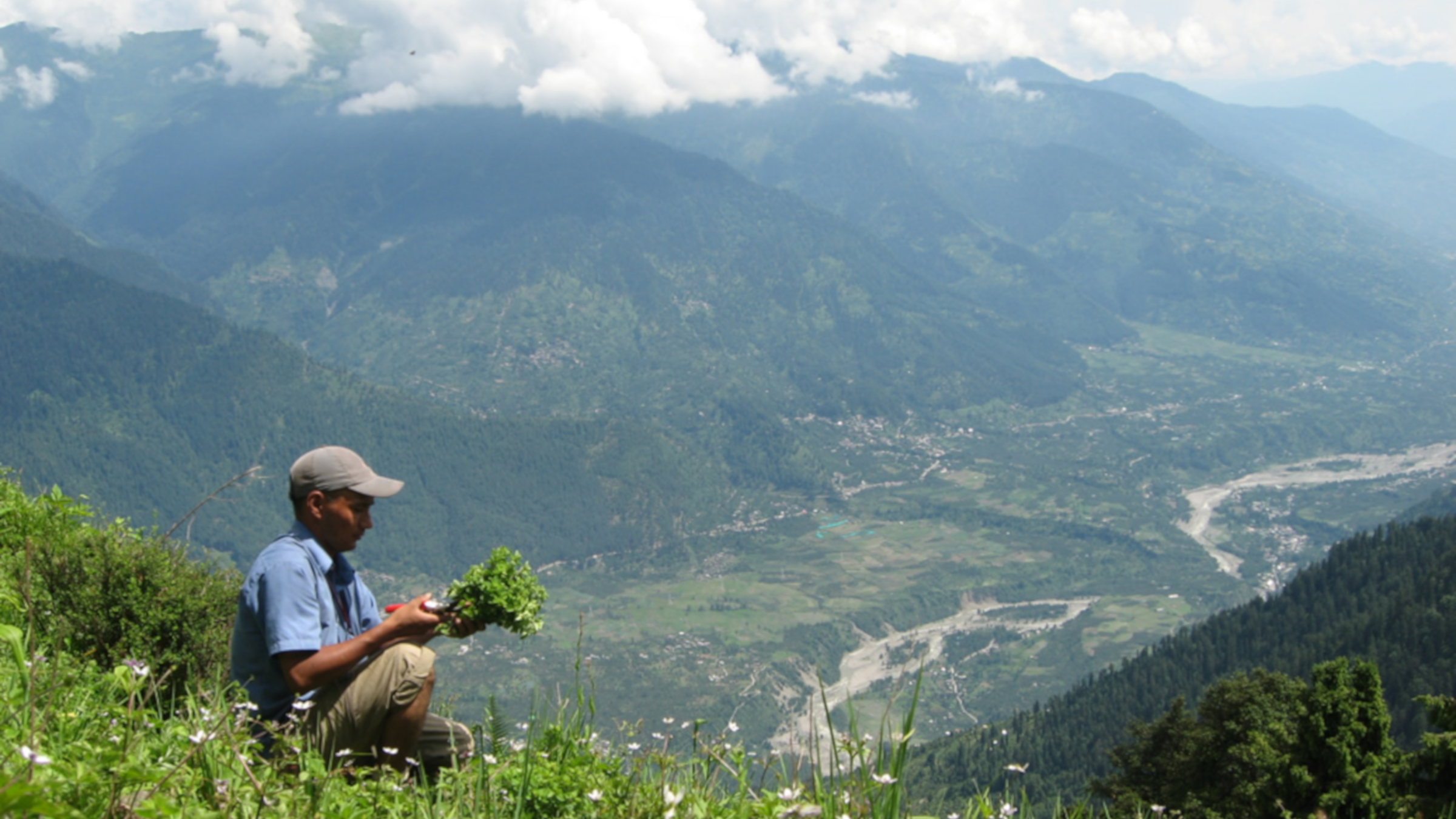Himalayan Oregano Oil and Sustainable Livelihoods against MRSA

Himalayan Oregano Oil against MRSA has the potential to improve health. At the same time, the partnership will provide a sustainable source of income for herb collectors through the collection of wild oregano and distillation of its essential oil and reduce villagers’ dependency on the collection of endangered herbs, thereby contributing towards conservation of those herbs in their natural habitat.
The partnership, comprising local businesses, an NGO and a UK university, have identified an essential oil from high altitude Himalayan oregano as an antimicrobial agent. Backed up by strong research, the partners intend to develop a fair-trade product that will use the oregano oil as an antimicrobial agent that could be used in hand soaps and surface disinfectants to prevent the spread of hospital-acquired infections, including Methicillin-Resistant Staphylococcus Aureus (MRSA).
The valuable medicinal herbs in the local area are at risk of overexploitation in order to meet increasing demand in the herb industry; this is endangering the livelihood needs of the local herb collectors. Oregano, however, is currently not collected - but is relatively common at high altitudes in remote areas. It can easily be harvested sustainably and has very promising market potential. MRSA is a type of bacteria that has developed resistance against a number of antibiotics. During the last decade, this ‘superbug’ has become a major global health concern. Tests have shown that Himalayan oregano essential oil is effective at killing MRSA at concentrations of as little as 1 in 2000.
Planned activities include:
- Publish a paper in a scientific journal to raise awareness, using research conducted by partners
- Implement a Wild Harvest Management Plan which sets quality production standards
- Perform a cost-benefit analysis, exploring production costs for Himalayan oregano oil and assessing the price needed for the raw material in order to provide an incentive to collect oregano instead of endangered herb species
- Develop the marketing strategy, focussing on its scientifically demonstrated effectiveness.
- Using oregano to prevent the spread of hospital-acquired infections, including methicillin-resistant Staphylococcus aureus (MRSA).
- Contributing to the conservation of those herbs in their natural habitat.
- Providing a sustainable source of income to herb collectors through the collection of wild oregano and distillation of its essential oil.
Partners
Biolaya Organics Pvt Ltd: sustainable production and conservation of endangered Himalayan medicinal herbs. www.biolaya.com
Jagriti (NGO): sustainable livelihoods and women’s empowerment in a remote mountainous area of Kullu.www.jagritikullu.org
Faculty of Health and Life Science, the University of the West of England, Bristol: university research group monitoring the effectiveness of novel antimicrobials. www.uwe.ac.uk
SGS India (Regional unit of the SGS Group): conducts routine tests of oregano to assess its efficacy as an antimicrobial and carries out further research.www.in.sgs.com
G.B. Plant Institute of the Himalayan Environment and Development (autonomous institute): Works on the conservation of natural resources and ensures environmentally sound development in the entire Indian Himalayan Region.www.gbpihed.gov.in/Himachal_unit.htm
